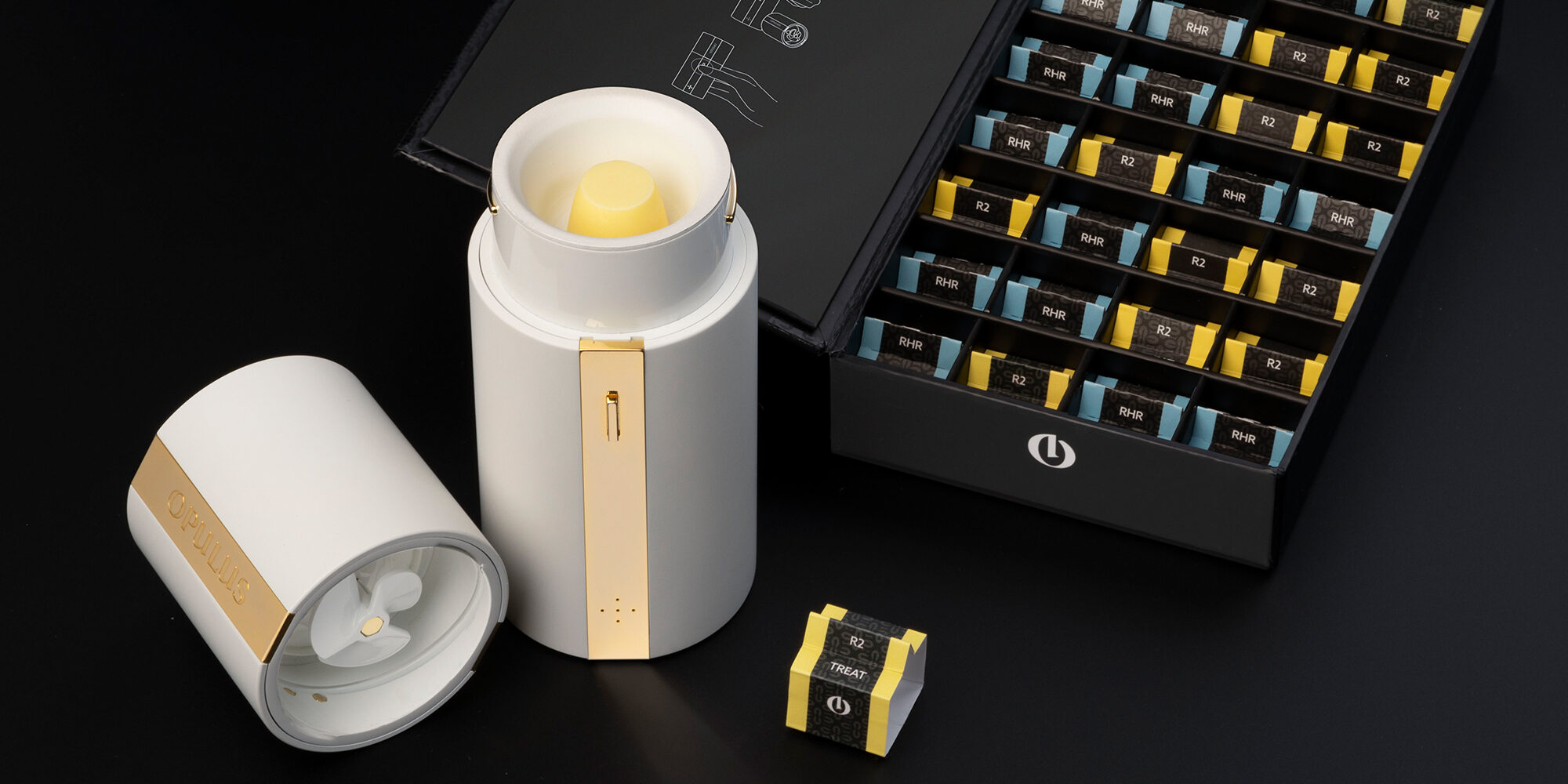
Opulus, Clarisonic Co-Founder’s Single-Serving Skincare Brand, Shutters
Opulus Beauty Labs, the skincare device brand Clarisonic co-founder Robb Akridge launched in 2020, has closed.
The closure, which occurred on Dec. 30, was announced on Opulus’s website, where it addressed customers by writing, “We are deeply grateful for your trust, loyalty, and support throughout our journey. Your enthusiasm for our groundbreaking skincare has been truly inspiring. Thank you for being part of our story.” The brand’s products are out of stock on the site, but remain available online at Neiman Marcus, Saks Fifth Avenue, LovelySkin and Amazon.
As the skincare device sector generates buzz in the beauty industry, the end of Opulus demonstrates how difficult it is for a skincare device brand to succeed, even for veteran talent informed by learnings in the sector, from the importance of creating an intellectual property moat to a careful distribution strategy. Like most skincare device brands, Opulus had a heavy lift to educate consumers on changing their habits to incorporate its offering and persuade them to keep it in their routines.
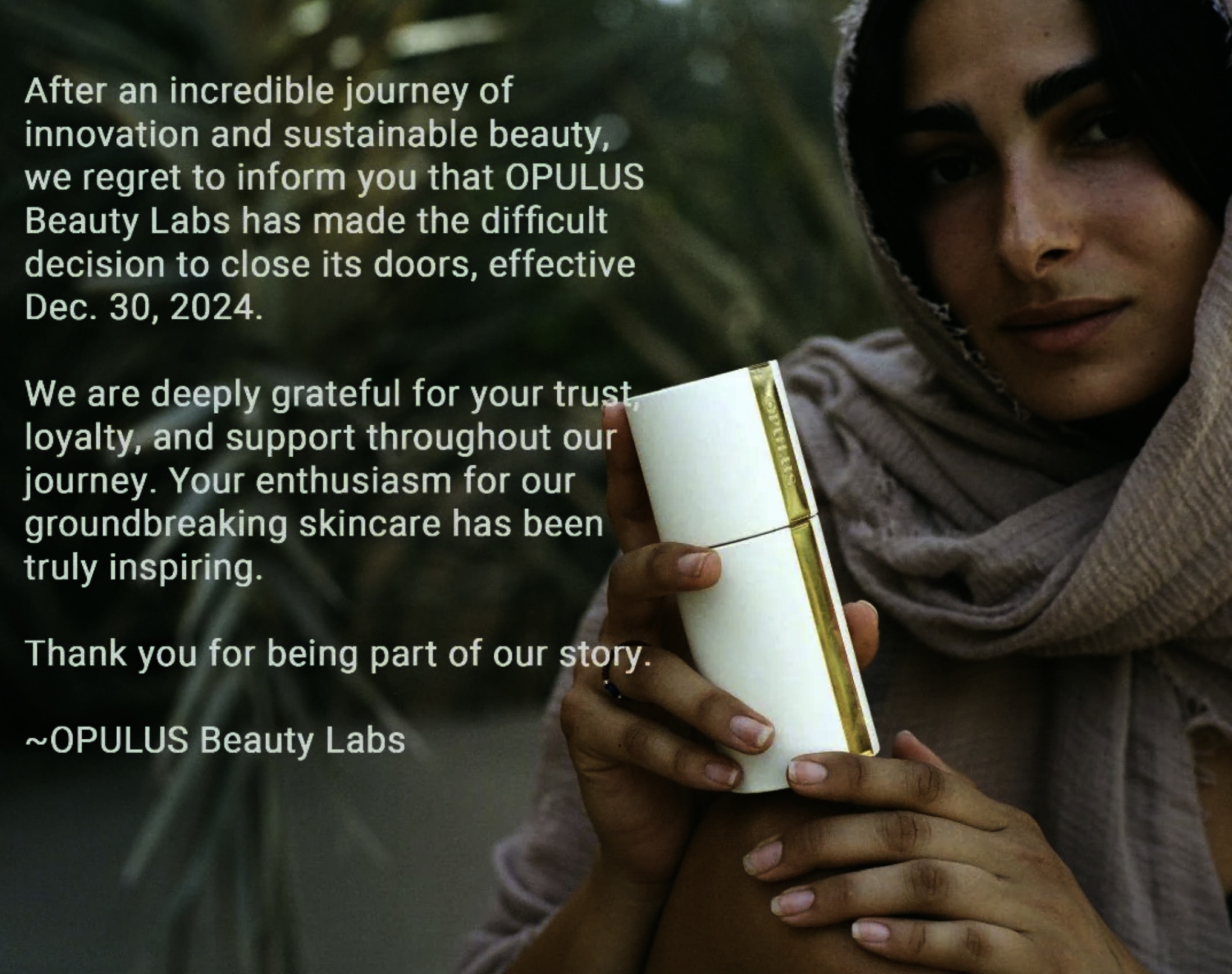
Similar to Keurig and named one of the best innovations of the year by Time magazine in 2021, the centerpiece of Opulus’s offering was a plug-in on-demand countertop skincare blender called the Activator producing single servings of topical skincare. Users placed skincare ingredient pods dubbed Opoules into the Activator that heated them up to 120 degrees in 15 seconds and whipped up a fresh batch of skincare in 90 seconds. A set with the Activator and 28 retinol Opoules started at $395, but the idea was to lower the price with subsequent iterations.
Speaking to Beauty Independent about the inspiration for Opulus, Akridge, aka Dr. Robb, who early on had ambitions to sell the brand to a conglomerate such as Unilever or Estée Lauder, said, “I was in a chocolate shop, a very elegant one, and I looked at all the individual pieces of chocolate—there were small ones and large ones, and different textures—and I thought, ‘Why can’t skincare be the same way?’ Obviously, I’m known for devices, and we are launching this in the skincare category, but we are different from our past experiences with Clarisonic. It’s going to be skin treatments, body treatments and hair treatments. It’s a totally different way of imagining beauty routines.”
Opulus arrived on the market at a moment when skincare ingredient freshness was a trending topic. On its site, the brand explains that exposure to air degrades skincare ingredients, while its single-dose mechanism delivers them at peak potency. Premiering not too long after Opulus, Exponent Beauty, a brand with a dispenser it dubs a Self-Activator that blends skincare ingredients for topical application, also focuses on skincare ingredient freshness and promises to provide skincare at peak potency.
Although its Activator was central to its proposition, on a Beauty Independent In Conversation webinar a little over three years ago, Akridge said its business model relied on replenishment of its Opoules because the Activator margins were low. At the time, he mentioned 20% of the brand’s customers were signing up for monthly subscriptions. In 2023, Akridge disclosed to the publication Glossy that Opulus’s sales doubled between 2021 and 2022. Out of the gate, he projected the brand could reach $6 million in first-year revenues.
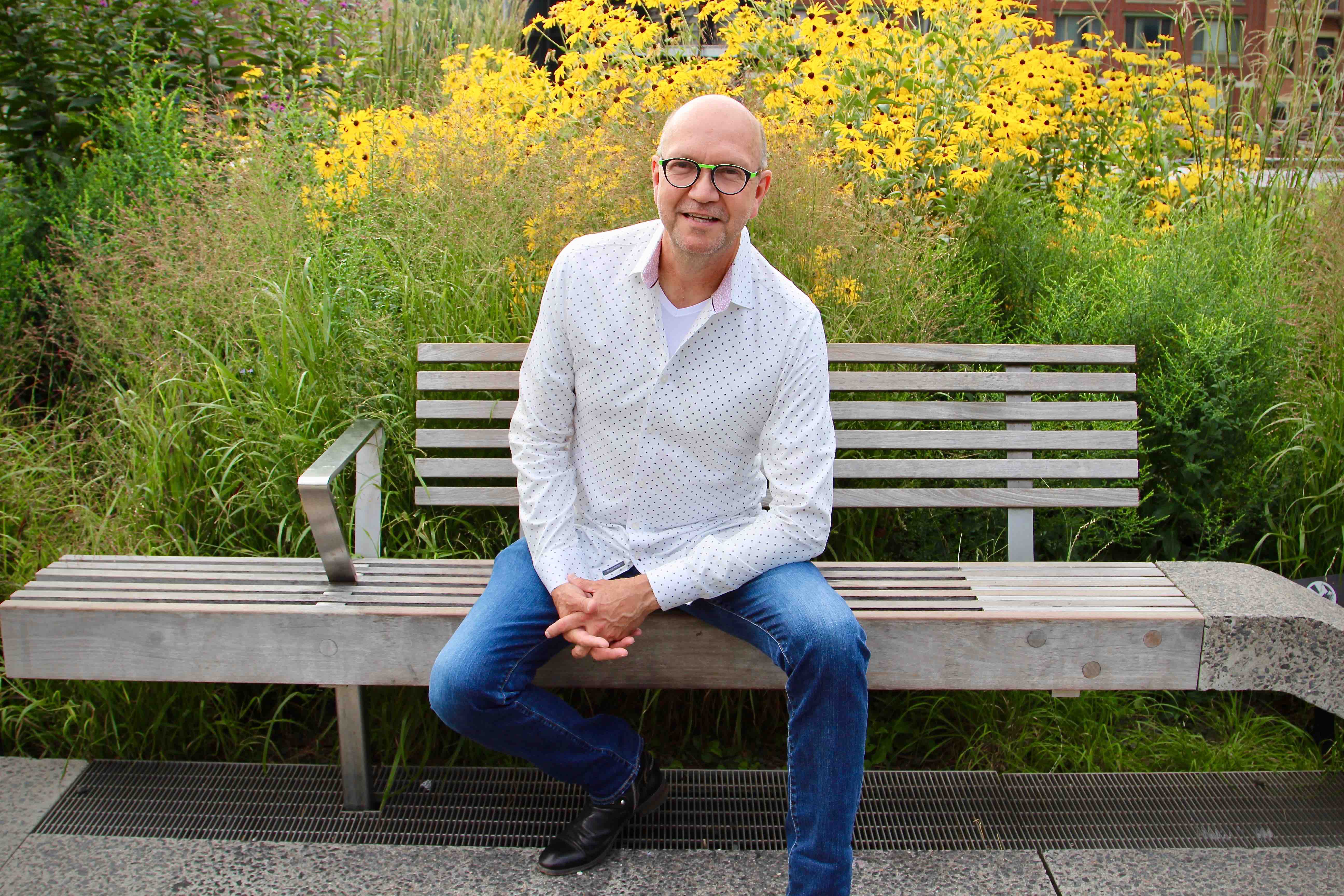
In general, lack of replenishment is a huge conundrum for skincare device brands that Akridge was painfully aware of, having dealt with trying to encourage replenishment at electronic cleansing brush brand Clarisonic with both topical products and replacement brush heads. He hoped to overcome it at Opulus by tying its appliance directly to topical skincare meant for repeated purchase.
Akridge, a former AIDS researcher with a doctorate in microbiology and immunology, previously told Beauty Independent he departed Clarisonic in 2018. L’Oréal purchased the brand in 2011 and shuttered it in 2020. Clarisonic parent company Pacific Bioscience Laboratories was established in 2001 by a quintet that had been involved in Optiva, the maker of electronic toothbrush brand Sonicare. Along with Akridge, it included engineer and entrepreneur David Giuliani, electrical engineer Ken Pilcher, mechanical engineer Steve Meginniss and chemist Ward Harris. Philips acquired Optiva in 2000.
At Sonicare, Akridge was exposed to the power of professional distribution. The brand gained steam with recommendations from dentists. Unveiled at a meeting of plastic surgeons, Clarisonic pursued a similar route and erected a network of dermatologists carrying and recommending the brand before cracking retail.
Opulus took a hybrid approach, endeavoring to strike partnerships with key dermatologists’ offices and spas as well as retailers. Department stores and QVC were prime targets. Akridge’s appearances on QVC were a major business driver for Clarisonic, and it generated more than $250 million in sales through the shopping network. Akridge appeared on QVC for Opulus in 2023, but the brand is no longer sold by it.
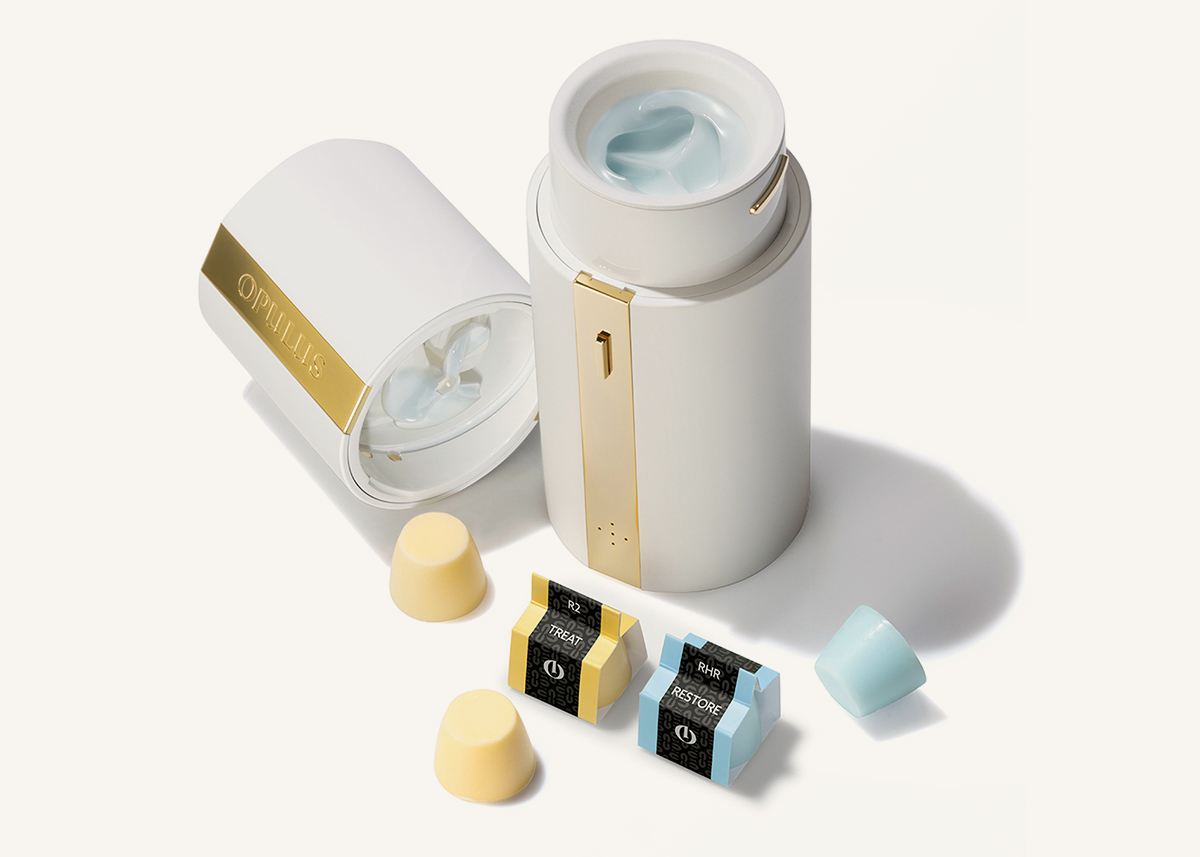
Along with the lack of replenishment, copycats are a problem for beauty tools. Akridge attempted to head them off at Opulus with intellectual property protection. The brand filed for five patents. To fund its development, Akridge shared with Beauty Independent that it raised around $8 million from roughly a dozen angel investors.
He built the Opulus team with Clarisonic, L’Oréal and Philips alums. Michelle Balmer, former VP of global education at Clarisonic, was chief brand officer at Opulus, and Greg Peterson, former senior scientist at Philips and L’Oréal, was senior formulation officer at the brand. In a press release, Opulus touted that its team had 100-plus years of collective experience.
Based on his experience, it wasn’t lost on Akridge that Opulus was a high-risk bet. Following L’Oréal’s killing of Clarisonic, Procter & Gamble phased out Opte, a smart makeup application device, in 2023.
Discussing the challenges device brands face with Glossy, Akridge said, “To truly innovate, you have to take risks. Large companies don’t like to risk anything, because if they fail, it will affect their stock. And whatever you’re working on needs to be extreme; you can’t just change the color of something. And it has to be addictive. Without that, if people don’t fall in love with it, they aren’t going to use it.”

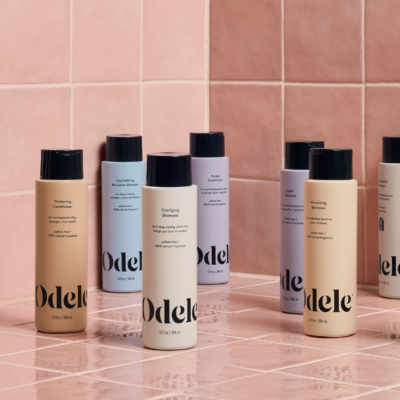
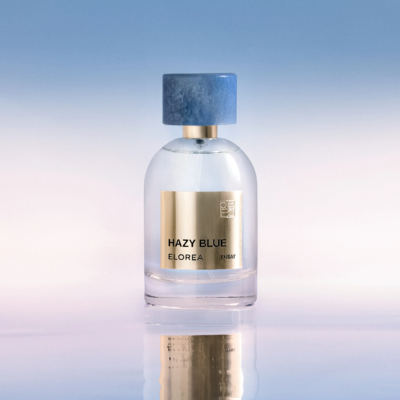
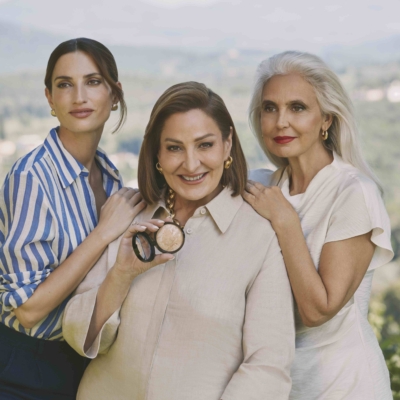
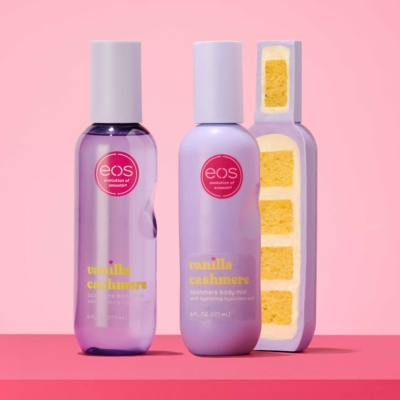
Leave a Reply
You must be logged in to post a comment.